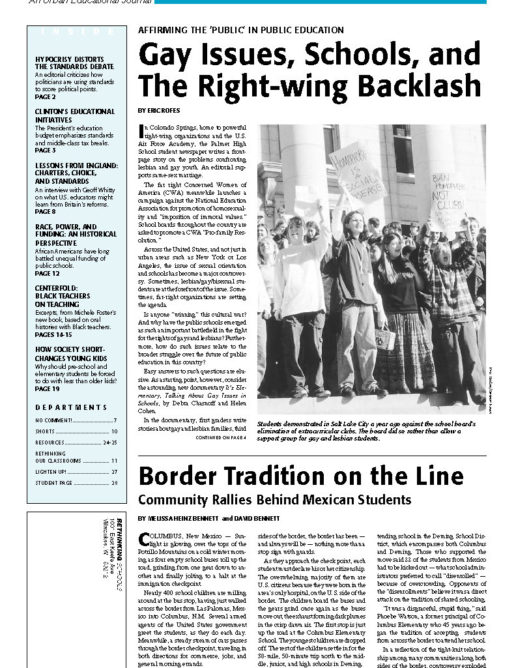Preview of Article:
Lessons from England
 The Thatcher government introduced a series of educationacts during the The Thatcher government introduced a series of education acts during the 1980s, which were continued by the Major government. These acts did two sorts of things, leading to what are called “quasi-markets” in education. One set of reforms involves parental choice and devolution — what in this country is called decentralization. In essence, responsibility for decision-making was taken away from local education authorities, or what you call school districts, and devolved to schools and parents. The schools were also allowed to compete for students.
The Thatcher government introduced a series of educationacts during the The Thatcher government introduced a series of education acts during the 1980s, which were continued by the Major government. These acts did two sorts of things, leading to what are called “quasi-markets” in education. One set of reforms involves parental choice and devolution — what in this country is called decentralization. In essence, responsibility for decision-making was taken away from local education authorities, or what you call school districts, and devolved to schools and parents. The schools were also allowed to compete for students.
The other set of reforms instituted a national curriculum and national tests. Despite rhetoric about “rolling back” the state, this set of reforms vested more power in the central government.
Interestingly, the education reforms in England and Wales have as much to do with transferring power to the central government as with giving autonomy to parents and schools, even if the rhetoric accompanying reform often suggests that education has been taken “out of politics” and returned to parents
Q: Can you explain how devolution works?
The first set of policies on devolution was introduced in 1980 when the government eased restrictions on parents choosing schools. The government also introduced the “assisted places scheme,” whereby lower-income parents of so-called academically able children could get government assistance to send them to some of the elite private schools. A lot of people saw this initiative as a stalking horse for a full-scale voucher program, although it hasn’t developed into that.
More important is the 1988 education reform act, which made four major changes to the way the school system operates (apart from the national curriculum and national testing).</p

